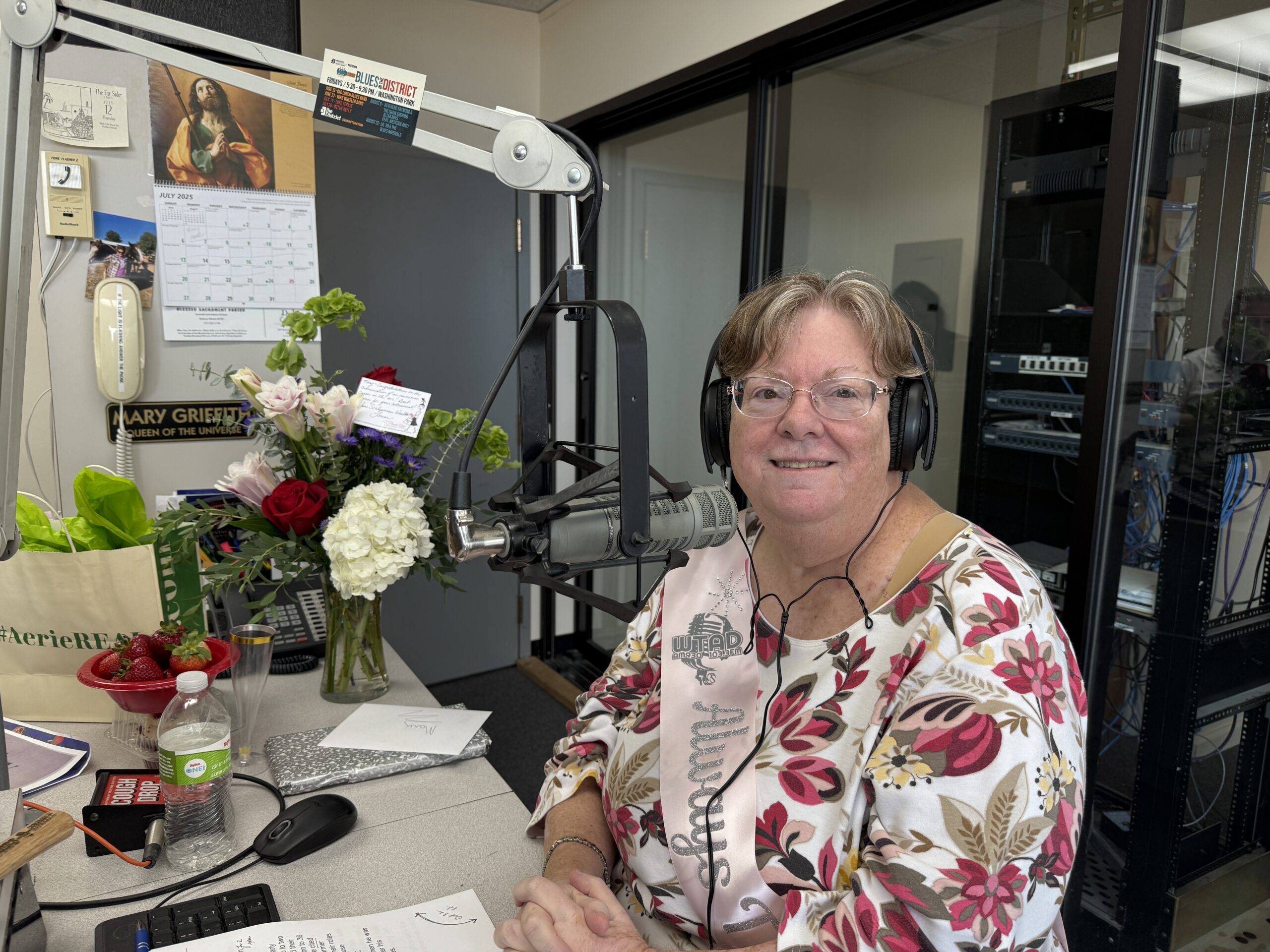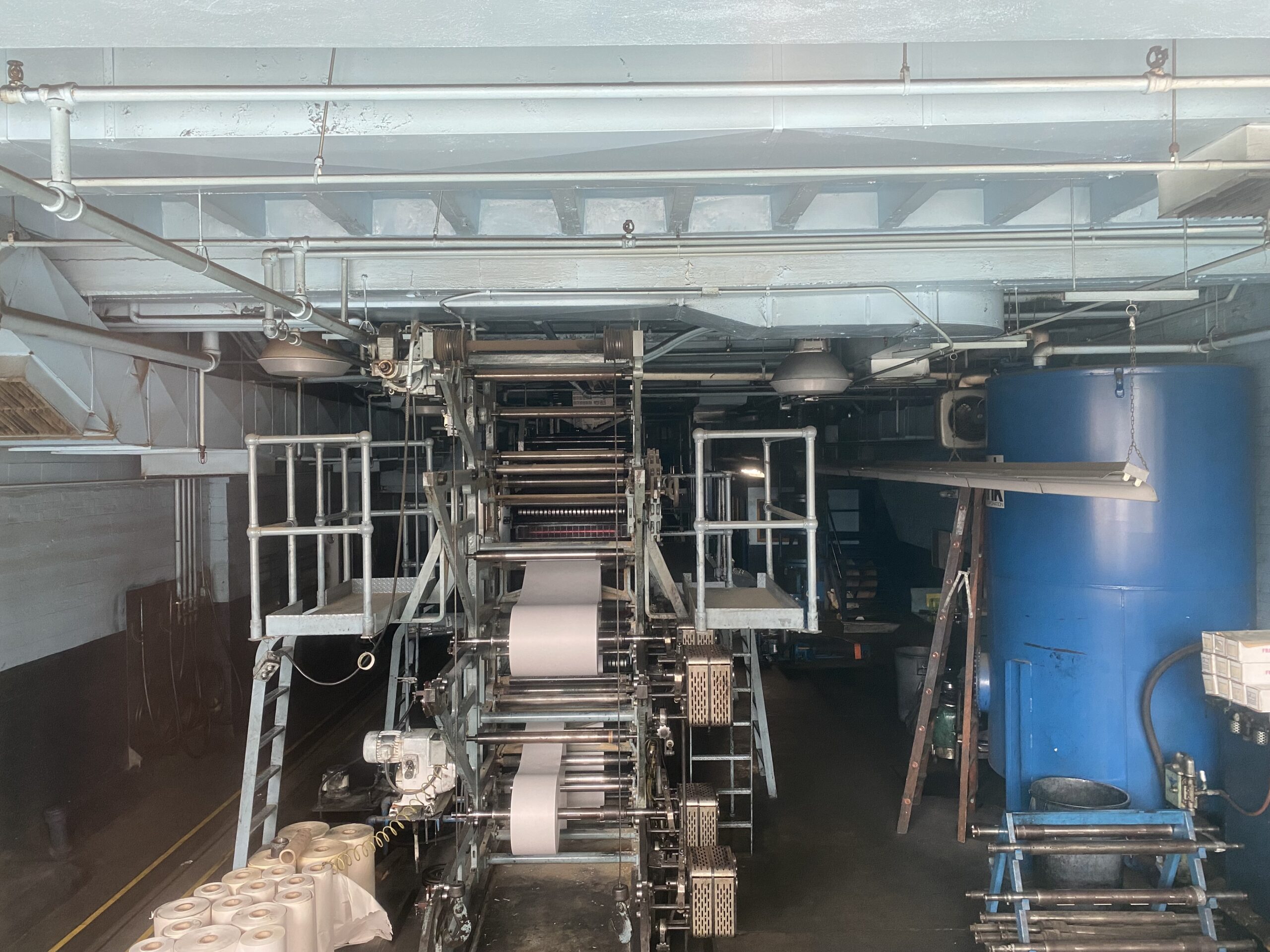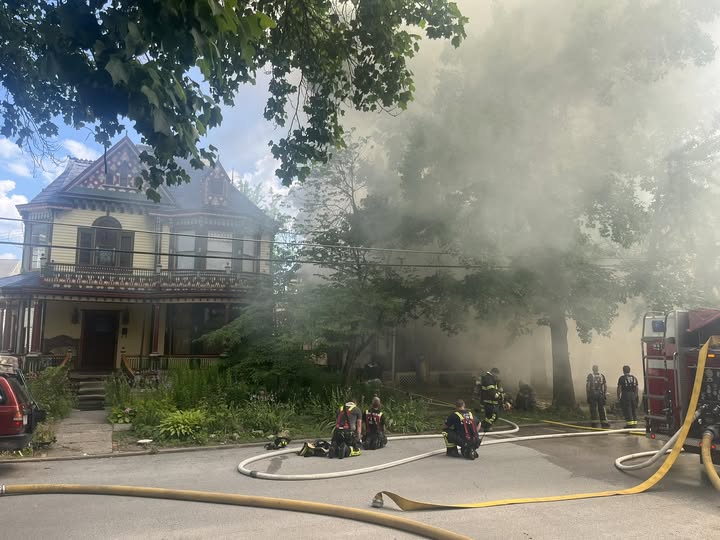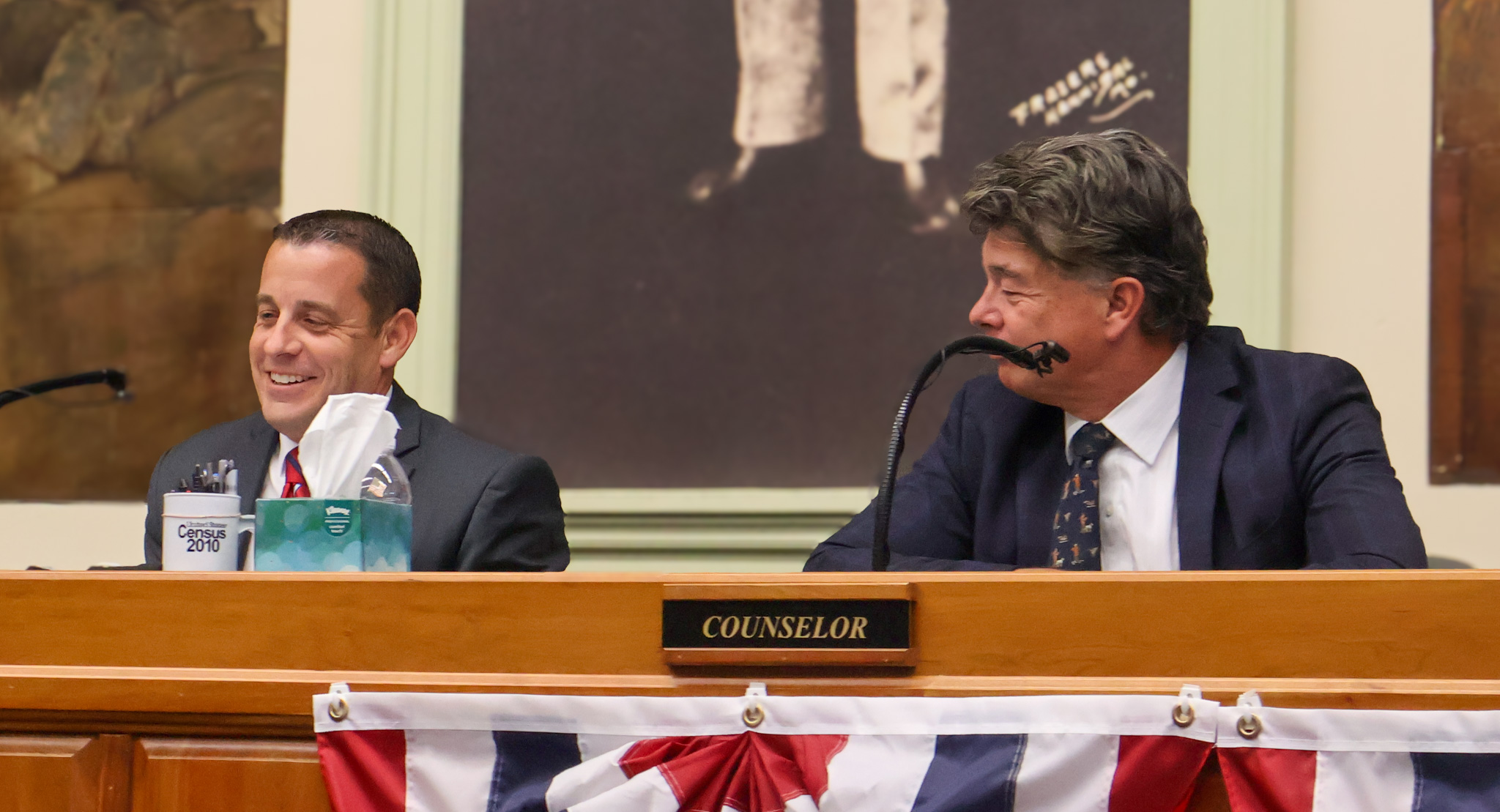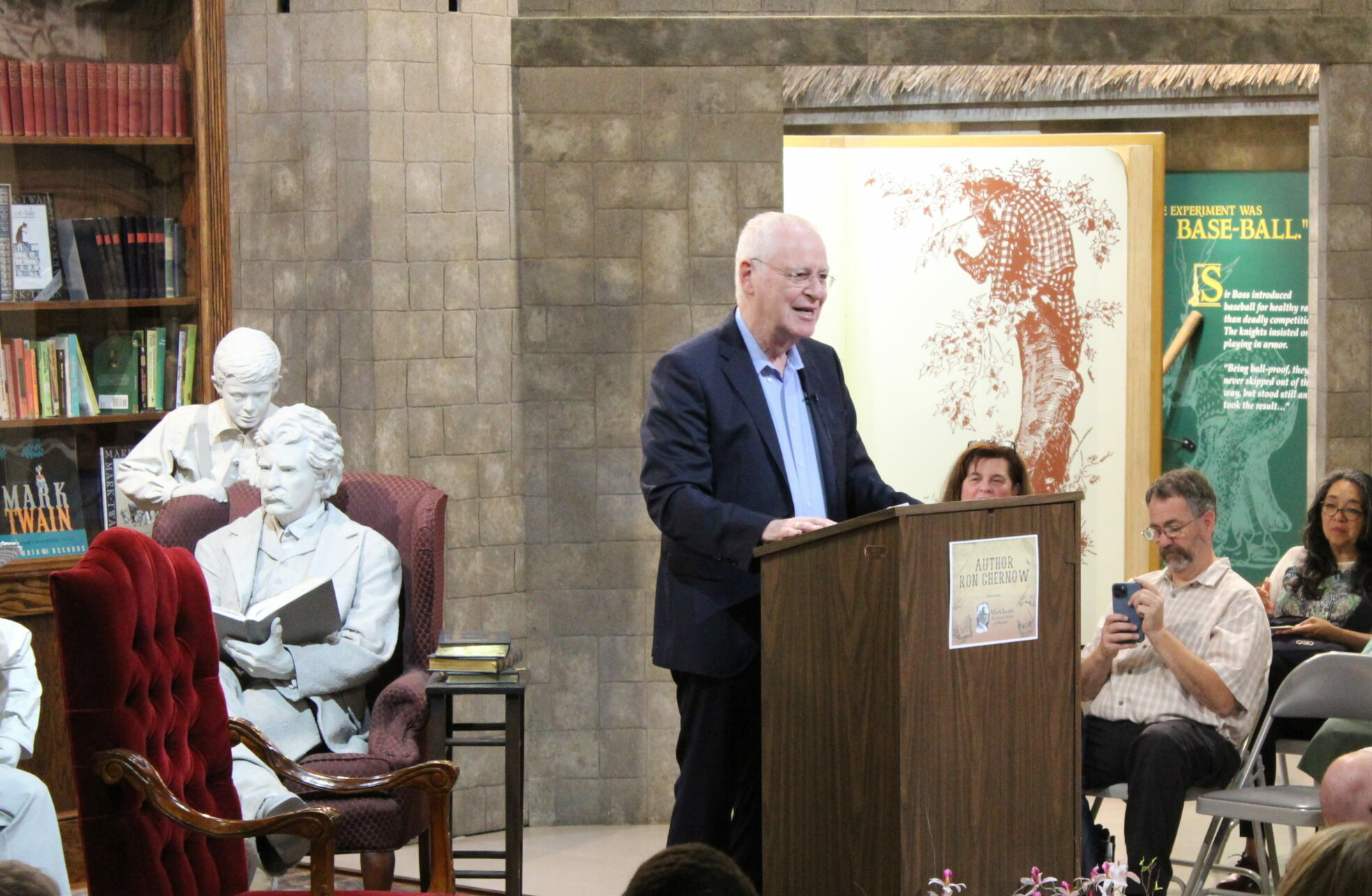The 77-year Griffith family tradition of providing the news in the Tri-States came to an end on Friday when Mary Griffith said goodbye, capping a 45-year broadcasting career.
Yes, exactly. 70. Seven years. There hasn’t been a local newscast without a Griffith behind the mic, thanks to Mary’s father, the late Charlie Griffith, and herself. And now? Mary’s departure from WTAD-AM Life and love told her it was time, not because she was ready to retire. Greg, her spouse, has started home dialysis due to kidney failure. She is therefore exchanging sterile gloves for studio headphones and talking parts for treatment plans.
However, don’t count on her to leave peacefully.
Griffith, who is essentially Quincy’s auditory wallpaper, began her work in the early 1980s, when newsrooms still had ashtrays and a Budweiser could be purchased at the Boat Club for less than a dollar. Her goal was not to become a broadcaster. In reality, she aspired to write Pulitzer-caliber prose for a major metropolitan newspaper, like Woodward or Bernstein. A job offer at WGEM TV, however, altered everything. So did the fact that she was the new employee about whom her father was grumbling about training.
One Friday, Charlie complained when he got home since he had to train a new employee the following morning. He said, “They won’t know a damn thing and they’ll probably only stay six months.” Mary maintained her poker expression. She said, “Dad, I’m the new girl,” in the kitchen the following morning, right before their carpool journey. He was taken aback. Even angry. He reluctantly took her to the station by car. The beginning of a career that would eventually outlast everyone in that newsroom was an uncomfortable journey to work.
She didn’t discuss politics or policy in her initial remarks on the radio. “Daddy, I need to use the restroom,” they said. When Mary was younger, she went to the station with her father to kill time. There, she used every plastic tornado decal she could find to make frightful false weather predictions and spin empty record turntables. She said, “You can play, but you can’t have the tornadoes,” to another young girl who was hanging out at the station one day. The sunshine is yours. The girl turned out to be Mary Oakley, the CEO of WGEM’s daughter. I’m sorry.
Before applying for a regular anchor position, she eventually found her way onto weekend television, stepping in as needed. She failed to understand. It wasn’t her voice. It has nothing to do with her reporting. However, she wasn’t attractive enough, according to her news director. Mary’s reaction? I resemble your six o’clock anchor identically, and he is thirty-five years my senior.
So she went out.
Her name became synonymous with local journalism, challenging questions, and the kind of storytelling that made both mayors and mothers sit up and listen after she left the WGEM building and went straight into radio, first at KHMO-AM in Hannibal, then KGRC-FM (which was also in Hannibal at the time), and finally WTAD.
However, she also played a crucial role as a babysitter.
Yours truly was formerly babysat by Mary, often known as Aunt Pinky. Indeed, she also made it through that. Seldom. She described me as kind, inquisitive, sometimes irascible, and constantly persuaded that I had her consent—even when it came to donning my brother’s mohawk.
She also brought to memory another thing: she and my dad had a close relationship outside of the newsroom as well. They treated one another like family and collaborated for decades. Mary was an extension of our staff, not just a coworker. A fixture. A favorite. Even when babysitting evolved into a full-fledged Adventures in Babysitting sequel, featuring a young child with the tenacity of a Jack Russell terrier and the negotiating prowess of a hostage negotiator, she was, to be honest, an absolute pro.
High points were experienced. similar to reporting on the 1981 Super Bowl. Additionally, there were amusingly low-budget newsroom ploys, such as when she discovered that Rich Gould, the director of WGEM Sports, had been snatching quarters from her and the other station rookies. He would say, “I really need a soda.” Can you give me a quarter? Mary repeatedly complied until she learned that the money was going to a jar in his desk drawer marked “Holiday Fund.” She didn’t request a refund. However, she ensured that he was aware of it.
Then came the challenging lessons.
The Missouri Broadcasters Association’s Best Investigative Reporting award for a series on Hannibal’s low-income families’ living circumstances was one of Mary’s first significant victories. Before she learned what had transpired later, it was a proud moment. All of the properties she highlighted in her expos were condemned by the city. It seems like a victory, but when you consider that no replacements were constructed. Nobody gave assistance. There was nowhere for the families residing in those unsuitable houses to go.
She said, “I didn’t invite them to come live with me.” I didn’t plan ahead enough. I told the story, but I didn t ask the next question: What happens to them now?
It was a turning point a sharp reminder that the job isn t just about truth. Impact is the key. And it shaped how she approached stories moving forward. With greater caution. More curiosity. More conscience.
She kept digging, even when it made people uncomfortable especially during a financial scandal involving Hannibal s sesquicentennial celebration in 1985. Her relentless coverage caught the attention of Pulitzer Prize-winning author and Hannibal native Ron Powers. He not only interviewed Mary for his book, White Town Drowsing, he wrote her in as a character.
To Mary, one of the real heroines of this book and a journalist I admire, he inscribed in her copy.
By 1988, WTAD came calling, and it would become her home for the next 37 years.
Mary started out doing afternoon news and beat reporting, eventually working mornings alongside Jeff Dorsey. And then eventually with the great Steve Boll. She covered floods, school board and city council dramas (some things never change), and just about every local controversy you could name. And when things got hot when advertisers complained or politicians got twitchy Mary sometimes found herself temporarily ousted. Twice she was fired. Twice she was asked back.
She stuck around not just in spite of the turbulence, but because of it.
And in that time, Mary became more than a journalist. She became part of the town s collective memory. She was the voice in your kitchen, the question at your press conference, the calm during the storm and occasionally the storm itself.
Even when the criticism came hard (and it did entire Facebook pages have been dedicated to hating her), Mary never let it shape her. Mostly because she never saw it. She s never had a Facebook page. Still doesn t want one.
I don t care what someone ate for dinner, she shrugged. And I really don t care what they think about something they know nothing about.
She s been called too bold, too opinionated, too much. One woman even called the station to say, Your father would be so disappointed in you. Mary s response? I don t remember you having dinner at our house. But I had thousands with my father and I can assure you; he was proud of me.
That was Mary. Clear-eyed. Sharp-tongued when necessary. But always guided by conviction, not convenience.
And still, she kept showing up. Kept asking. Kept telling the stories.
I ve had presidents on the mic, she said. But the interviews I remember most are the everyday people who did something extraordinary.
A mother who survived a near-death childbirth and became an advocate for blood donation. A kid with unshakable curiosity. A neighbor who stood up when no one else would. These are the stories that stuck with Mary. Not because they made headlines but because they made a difference.
Because to Mary, journalism was never just about breaking news. It was about breaking cycles. Asking questions others were too afraid to ask. Telling stories others tried to bury. Holding people and power accountable. Whether it was city hall, a school board, or a shady sesquicentennial committee, Mary understood that a healthy community needs a watchdog with a microphone.
And for 45 years, she was that voice.
I ve stuck in when I didn t like my job. I ve stuck in when people didn t like me, she said.
It s kind of like Survivor. I ve outwitted, outlasted, outplayed.
And through it all she never stopped showing up.
